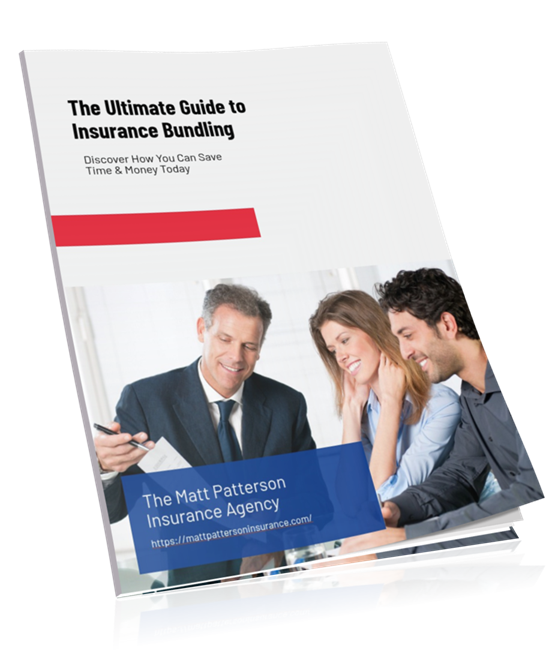For as long as we’ve been driving, auto insurance has operated on a simple, one-size-fits-all principle. You pay a set premium every six or twelve months, and that price is based on a snapshot of who you are: your age, your driving record, the car you own, and where you live. It’s a reliable system, but it has one major flaw.
It doesn’t care if you drive 20,000 miles a year or if your car sits in the garage five days a week. Your San Marcos auto insurance bill is often the same.
In a world where more people are working from home, commuting less, and generally more conscious of their driving habits, this old model can feel outdated and unfair. Why should you pay the same as a long-distance commuter if you only use your car for weekend errands?
This question is at the heart of a revolution in the insurance industry, powered by technology: Usage-Based Insurance (UBI). You may have heard it called “pay-per-mile” or seen ads for programs that promise to reward good drivers. It’s a compelling idea, but it also raises new questions about privacy and performance.
So, is it time to make the switch? Let’s break down what usage-based insurance really is, explore the powerful benefits, and consider the important trade-offs to help you decide if it’s the right move for you.
Table of Contents
What Exactly is Usage-Based Insurance?
Usage-based insurance isn’t just one thing. It’s a broad term for any type of auto insurance policy that uses data from your car to help determine your premium. This data is typically collected by a small telematics device you plug into your car’s OBD-II port (the same port mechanics use for diagnostics) or through a smartphone app.
These programs generally fall into two main categories:
- Pay-Per-Mile (PPM): This is the simplest model. Your premium has two parts: a low, flat “base rate” that you pay each month, plus a few cents for every mile you drive. If you have a low-mileage month, you have a low bill. If you take a long road trip, your bill will be higher (though most programs have a daily cap to protect you).
- Pay-How-You-Drive (PHYD): This is a more holistic approach. The program doesn’t just track how much you drive, but how you drive. It monitors driving behaviors like hard braking, rapid acceleration, cornering speed, and even the time of day you’re on the road. Safe, responsible drivers are rewarded with significant discounts.
The Appeal: The Big Benefits of Switching
For the right person, the advantages of a UBI program can be significant.
- Significant Potential Savings: This is the number one reason people switch. If you are a low-mileage driver, a PPM program can result in substantial savings—sometimes 30-50% compared to a traditional policy. This is a game-changer for remote workers, retirees, students who live on or near campus, and families with a third car that is rarely used.
- You’re in Control: UBI puts you in the driver’s seat of your own premium. Your rate is no longer based solely on broad demographic data; it’s directly tied to your personal habits. This sense of control and transparency is a powerful benefit, as you are paying for what you actually use.
- It Can Make You a Safer Driver: The feedback loop in PHYD programs can be a powerful tool for self-improvement. When the app gives you a “driving score” and points out that you tend to brake hard or accelerate too quickly, it makes you more conscious of your habits behind the wheel. This can lead to safer driving, which benefits everyone.
The Considerations: What to Know Before You Plug In
While the savings are tempting, UBI isn’t for everyone. It’s a trade-off, and there are important factors to consider.
- The Privacy Question: Let’s address the elephant in the room. To make this work, you are agreeing to share your driving data with your insurance company. This includes your location (GPS), your speed, and your driving habits. Insurance companies have strict privacy policies, but you must be comfortable with this data exchange. For some, this is a non-starter, and that’s a perfectly valid personal choice.
- It’s Not Just How Much You Drive: In PHYD programs, a driver with a short but aggressive commute—lots of stop-and-go traffic, hard braking, and quick accelerations—might not save any money, and in some states, could even see their rates increase. Your driving style is under the microscope.
- The Occasional Long Road Trip: This is a common fear for those considering a PPM program. What happens when you go on vacation? The good news is that most programs have a daily mileage cap. For example, they might only charge you for the first 150 or 250 miles you drive in a single day. This prevents you from getting a shockingly high bill after a long trip.
Who is the Ideal Candidate for Usage-Based Insurance?
After weighing the pros and cons, a clear picture emerges of who stands to benefit the most from these programs. You might be a perfect fit if you drive less than average, value transparency in pricing, and are already comparing options and car insurance quotes in San Marcos TX for a better deal.
- You are a low-mileage driver (generally under 10,000-12,000 miles per year).
- You work from home or have a very short, easy commute.
- You are a retiree who no longer drives daily.
- You are a college student whose car stays parked on campus most of the time.
- You are a confident, safe driver who avoids aggressive habits like speeding and hard braking.
- You have a vehicle that is used infrequently, like a weekend classic car or a spare family truck.
Conversely, a usage-based program may not be the best fit if you are a long-distance commuter, a sales professional who is always on the road, or someone who highly values their privacy and is uncomfortable with data monitoring.
Usage-based insurance is a powerful and innovative tool, but it’s not a one-size-fits-all solution. The best way to find out if it’s right for you is to have a conversation about your needs to compare pricing and options for comprehensive car insurance in San Marcos. As independent agents, we can help you compare traditional policies with UBI options from multiple carriers to find the perfect fit for your wallet, your lifestyle, and your peace of mind.
Frequently Asked Questions About Usage Based Auto Insurance
What happens if I have one “bad” month of driving? Will my rates skyrocket?
Generally, no. Most programs are looking for consistent patterns over time. A single month with a long road trip (on a PPM plan) or a few extra hard-braking incidents (on a PHYD plan) is unlikely to dramatically alter your premium. The goal is to base your rate on your typical, long-term habits.
Can the data collected by the device be used against me in a claim?
This is a critical question and the answer can vary by state and by insurance company. You must read the terms and conditions carefully. Some policies state that the data will only be used for rating purposes, while others reserve the right to use it in claim investigations. It is essential to be clear on this before you enroll.
What if I unplug the device or turn off the app?
Doing so would be a violation of the terms of your insurance policy. Continuous data transmission is required to participate in the program. If you unplug the device, you’ll likely be removed from the UBI program and switched to a standard, traditional policy, potentially losing any discounts you have earned.
How soon do I start seeing discounts?
This varies by program. Some companies offer an immediate discount just for signing up and activating the device. Most PHYD programs have an initial “trial period” of a few months where they gather data on your driving habits, and then your discount is calculated and applied at your next policy renewal.
Does my driving data affect my credit score?
No. The telematics data collected about your driving habits is completely separate from your financial information and has no impact whatsoever on your credit score.





